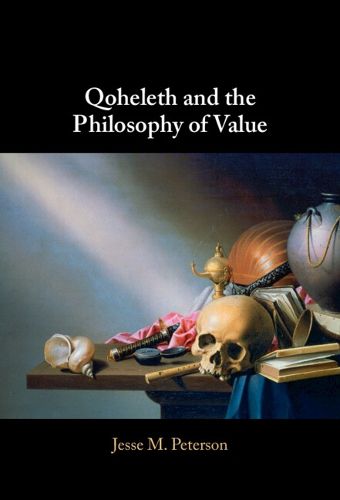Readings Newsletter
Become a Readings Member to make your shopping experience even easier.
Sign in or sign up for free!
You’re not far away from qualifying for FREE standard shipping within Australia
You’ve qualified for FREE standard shipping within Australia
The cart is loading…






The book of Ecclesiastes is the Bible's problem child. Its probing doubts, dark ruminations, self- reflexive dialogues, and unflinching observations have simultaneously puzzled and fascinated readers for over two millennia. Some read the book's message as hopelessly pessimistic, while others regard the text as too contradictory to bear any consistent message at all. In this study, Jesse Peterson offers a coherent portrait of the book and its author-the early Jewish sage known as Qoheleth-by examining both through a philosophical lens. Drawing from relevant contemporary philosophical literature on meaning in life, death, well-being, and enjoyment, Peterson outlines a clear and compelling portrait of Qoheleth and his philosophical assumptions about what is good and bad in the human experience. As Peterson argues, Qoheleth's grievances concerning the pursuit of meaning in life are paired with a genuine affirmation of life's value and the possibility of a joy-filled existence.
$9.00 standard shipping within Australia
FREE standard shipping within Australia for orders over $100.00
Express & International shipping calculated at checkout
The book of Ecclesiastes is the Bible's problem child. Its probing doubts, dark ruminations, self- reflexive dialogues, and unflinching observations have simultaneously puzzled and fascinated readers for over two millennia. Some read the book's message as hopelessly pessimistic, while others regard the text as too contradictory to bear any consistent message at all. In this study, Jesse Peterson offers a coherent portrait of the book and its author-the early Jewish sage known as Qoheleth-by examining both through a philosophical lens. Drawing from relevant contemporary philosophical literature on meaning in life, death, well-being, and enjoyment, Peterson outlines a clear and compelling portrait of Qoheleth and his philosophical assumptions about what is good and bad in the human experience. As Peterson argues, Qoheleth's grievances concerning the pursuit of meaning in life are paired with a genuine affirmation of life's value and the possibility of a joy-filled existence.